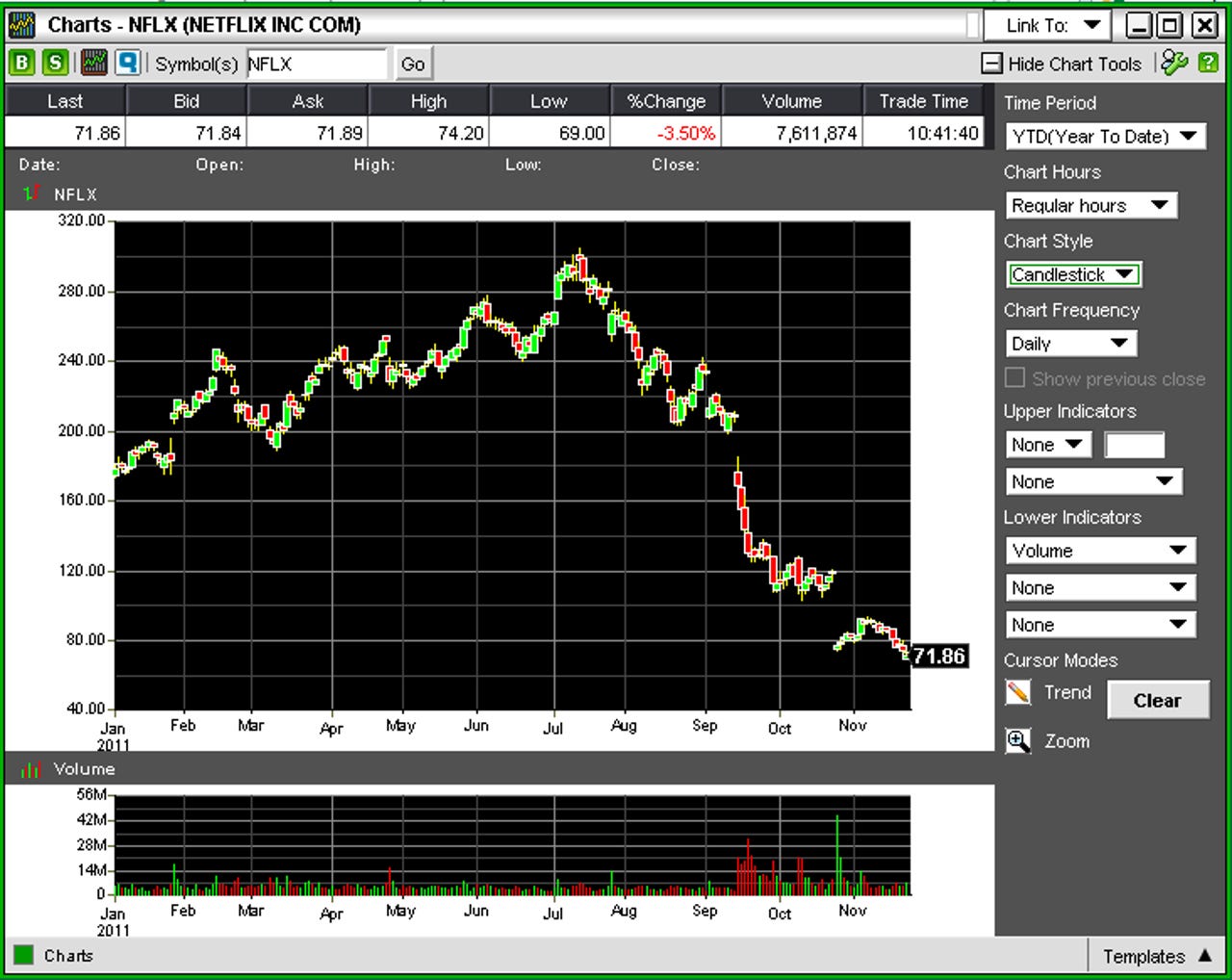Netflix eases liquidity worries, raises more questions

Netflix's move to raise $400 million and outline how it will lose money for 2012 has raised questions about whether the company can realistically expand internationally, ink pricey content deals, keep customers and withstand competition from Amazon and others.
On Monday, Netflix outlined plans to raise $400 million in stock and bonds. The company sold $200 million in shares to T. Rowe Price and raised another $200 million via a private placement with Technology Crossover Ventures with an initial conversion price of $85.80 a share.
If Netflix recovers nicely, T. Rowe and Technology Crossover Ventures will make a bundle. For now, Netflix's shares aren't a sure bet by any stretch. In its prospectus, Netflix said:
We expect that consolidated quarterly revenue will be relatively flat until we can achieve positive net subscriber additions. As a result of the relatively flat consolidated revenues and previously announced increased investment in our International segment, we expect to incur consolidated net losses for the year ending December 31, 2012. We cannot assure you that our domestic streaming cancellations will continue to decline or that gross new additions will remain strong. If we are unable to repair the damage to our brand and reverse negative subscriber growth, our business, results of operations, including cash flows and financial condition will continue to be adversely affected.
Netflix also outlined the current state of its business. Streaming and DVD gross cancellations declined steadily in October and first half of November. Netflix is also adding streaming customers and losing DVD subscribers. That outlook is consistent with what Netflix projected at the end of the third quarter.
So what's the problem? Netflix could lack the cash to sign content deals if new customer growth stalls. That's why Netflix had to raise money even though it's obvious that the company would have been better off selling shares at $300 just a few months ago. According to Netflix it has to pay $741 million in streaming content license deals in less than a year. There's another $2.14 billion due for streaming content deals one year to three years out.
Wedbush Securities analyst Michael Pachter connected the dots in a research report. Pachter, who has a $45 target on Netflix, said:
It appears to us that today’s transactions were the result of Netflix’s deteriorating performance and the corresponding impact on its liquidity. Netflix ended Q3:11 with $366 million of cash and short-term investments. The company’s balance sheet showed amounts owed for streaming rights (accounts payable of $654 million and non-current liabilities of $348 million), with another $3.46 billion in commitments and contingencies. These liabilities total roughly 12x the company’s cash and short-term investments at the end of Q3, and recent domestic subscriber attrition and planned increased spending on streaming rights appear to have resulted in rapidly declining liquidity in Q4, forcing the company to raise capital at less-than-optimal terms.
Sterne Agee analyst Arvind Bhatia said:
Last night’s $400 million capital raise provides an additional cash buffer that should help alleviate any near term balance sheet concerns arising from 1) projections of "losses for a few quarters in 2012"; and 2) large content commitments made in recent quarters.
Netflix's lesson, which applies to everything financial, is this: You don't raise capital when you need it but when you can. Netflix alleviated concerns about its balance sheet by raising $400 million, but the questions are likely to continue as it continues to ink content deals.
Related:
- Amazon’s dueling content act will hurt Netflix
- Netflix's big collapse: Do you believe in streaming, international expansion?
- Netflix's latest show: When creative destruction attacks
- Netflix's debacle continues: Fourth quarter outlook horrid
- Netflix takes profit bullet for UK, Ireland launch: Is it worth it?
